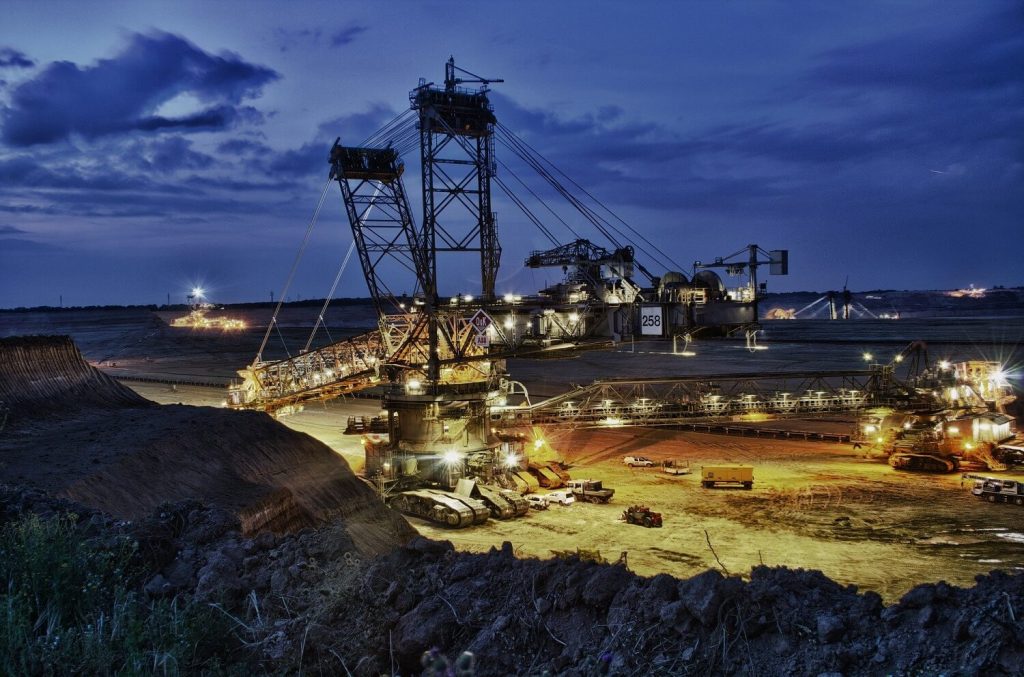Transportation and Logistics: The Challenges of The Mining Industry
 September 15 2020
September 15 2020
Mining is one of the major primary industries in Canada. Of course, the richness of our subsoil is an indisputable factor, but without the transportation and logistics expertise of our Canadian freight forwarders, our mining industry would not be as successful here and abroad. The mining transportation and logistics industry must constantly adapt to unforeseen circumstances to prevent delays in the supply chain, which is vital to the success of a project. What are the major challenges that this sector of the industry will have to face in the upcoming years?

Like it or not, climate changes are real and can heavily affect the mining supply chain. “People say the planet has warmed by 1 degree over the past 125 years but over the past 70 years, there are parts of Canada that have warmed by 4 degrees in some seasons”1, recalls David Philips, a climatologist at Environment Canada. As the Earth’s temperature increases, weather disruptions happen more frequently. Natural disasters such as tsunamis, hurricanes, storms, earthquakes, landslides, and cyclones have seen their numbers increase. The rainy seasons are shifting from their regular schedule. During heat waves, wildfires are devastating entire regions. Melting ice and torrential thunderstorms raise ocean and river water levels, increasing the risk of flooding. Freezing rain and extreme winter temperatures make it difficult to access mineral transportation.
In 2018, the International Red Cross organization recorded four times more shocks and serious dangers linked to climate, compared to the number of events observed in the 1970s.2 All these contingencies tend to complicate the task for freight forwarders working in collaboration with mining companies. According to Mr. Mario Roy at Mining Logistics: “Being alert, consulting weather forecasts related to the project area, ensuring close collaboration with relevant mining actors, developing an emergency plan as prevention, studying and offering alternative routes for transporting goods, these are all strategies that will help to react quickly to unforeseen weather events when they arise.”
To counter the effects of global warming, the mining industry is already undergoing changes. Nowadays, mines are trying to save energy to be more profitable. By consuming less energy, they lower their production costs while reducing their environmental footprints, without decreasing their efficiency. There is a pivotal point between cost, productivity and demand for natural resources required to go green. Like lithium, for instance, it must be extracted and transformed before it becomes an electric car battery. As a viable long-term solution to global warming, the electrification of transport vehicles is also considered to be a part of the mining industry transformation. (Recommend reading: The trucking industry at the turning point of an environmental revolution.)
Financial challenges can also be expected in the near future. Undoubtedly, investments in the mining industry correlate with market supply and demand for a specific natural resource. “It is based on the operating cost, on the stock exchange value of ore and on its high demand that a mining project will be deemed profitable and therefore possible”, highlights the Business Development Director at Cargolution. With the current global pandemic going on, everything suggests that the repercussions of COVID-19 will not spare the mining market in a short- or medium-term outcome “because feasibility is a question of confidence and profitability for investors and shareholders,” he adds.
The lack of human resources is another big challenge for the transport and logistics sector of the mining industry. Depending on the region where the mining project takes place, the geopolitical environment is a significant factor in finding people willing to work in politically unstable areas. Transporting mining goods to an area where the project’s social acceptability remains in question can be a risky and complex task that is not suitable for everyone.

Mining Logistics,
Cargolution
Meanwhile, the aging population phenomenon will also affect this sector of the industry. “Many mining experts are approaching retirement age; it is important that their knowledge is passed on to the younger generations”, says Mr. Roy. To stand out in this market, people must shine through their knowledge and skills. As the mining industry evolves with technological breakthroughs, it tends to computerize and automate with the implantation of artificial intelligence. “It’s hard to stay on top of everything. In addition to knowing all the secrets of traditional logistics, you also have to be an expert and manage all the details of the mining industry. It’s not an easy task; it’s quite a challenge!” concludes the Mining Specialist. Finding competent and experienced candidates and ensuring the knowledge transfer to the next generation is essential for the future and the success of the Canadian mining industry; the machine will not replace human expertise anytime soon!
The expertise of the mining industry specialists at Cargolution goes well beyond the mandate of moving goods. Building a close relationship with this freight forwarder has allowed small- and medium-sized Canadian mining businesses to embrace the international market and to achieve multiple successes. Will your company be the next one?

